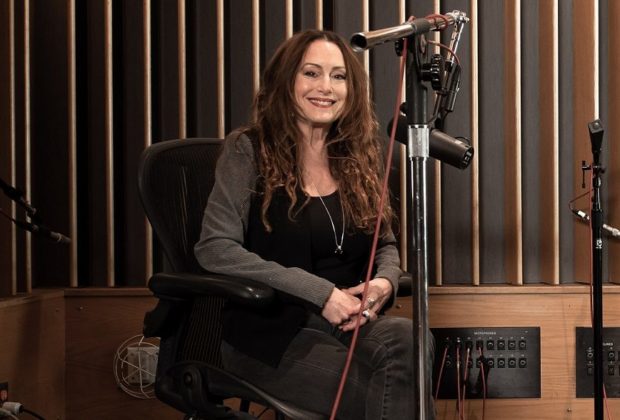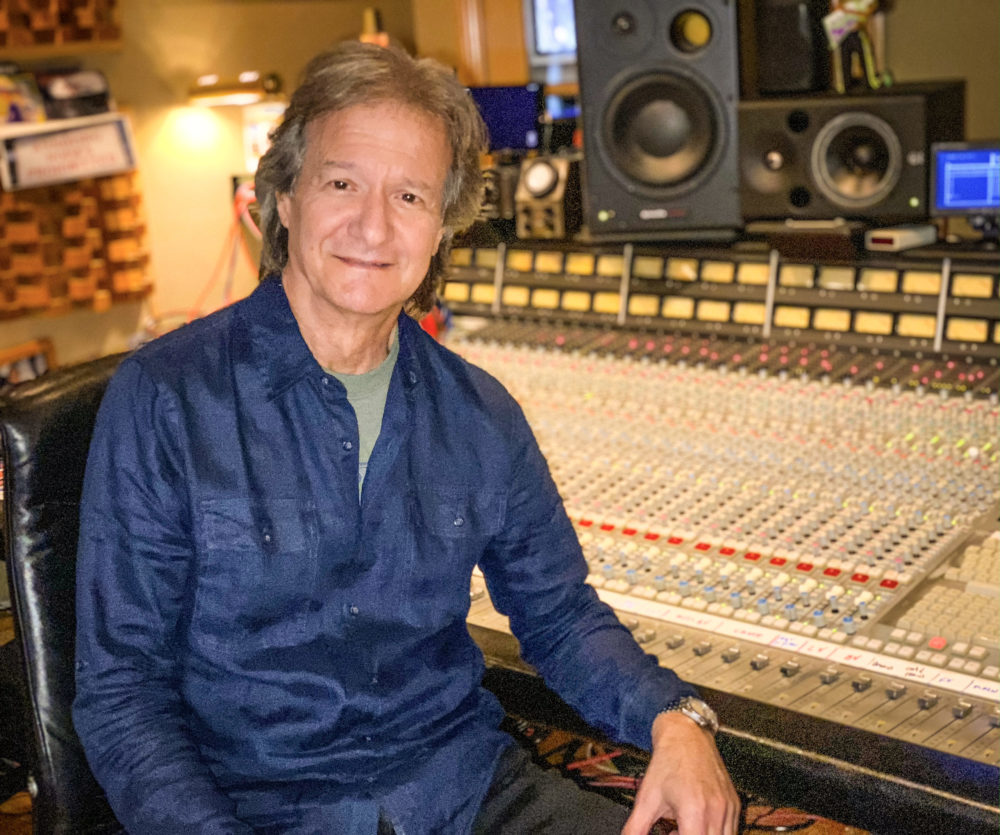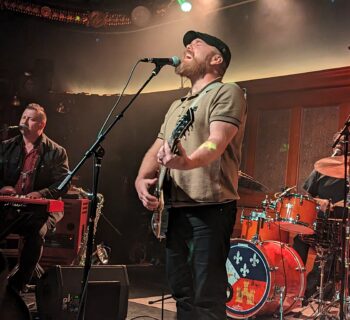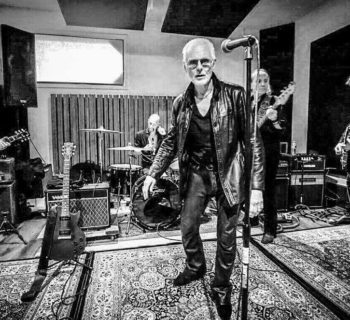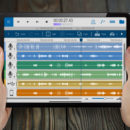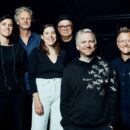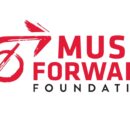VP Client Relations and Studio Marketing, UMG
Years with Company: 30
Address: 1750 North Vine St., Hollywood, CA 90266
Phone: 213-361-9514
Web: universalmusic.com
Email: [email protected]
BACKGROUND
When she was nine, Paula Salvatore implored her father to buy her a piano. But after he yielded up a sewing machine instead, she spent some time as a seamstress. After two years in Boston, she came to L.A. and worked for a time in clothing design for musicians, but was drawn back inexorably to music. Salvatore started at Kendun Recorders after she made a call and talked her way into the job. Mentored largely by former Record Plant president Rose Mann Cherney, she went on to manage Sound City for nine years before being recruited by Capitol Studios. She helmed that storied space for a further 30 where she worked alongside the late, legendary recording engineer Al Schmitt. Earlier this year Salvatore was offered the plum position of marketing for all of Universal’s American studios.
Her Start with Studios
I’d heard that someone had just left traffic at Kendun Recorders. I didn’t know anything about studios, but I called my friend Vini Poncia and asked him what I needed to know to work in one. He wasn’t sure, so I called and told [Kendun Recorders] that I was right around the corner, and I popped in. Althea Mathis, this really distinguished lady, came in and explained that I didn’t really have studio experience. But I told her, “I have no bad habits, I’m completely trainable and all those girls that got laid off from the record companies are gonna give you attitude.” So, she gave me a chance. That’s when I realized, once you sneak in, you never sneak out.
Laying the Groundwork
I have such a great number of clients I’ve met over the years. A recording studio is an intimate setting: people are at their best, creatively, but they’re sometimes self-conscious. You get to know them on a deep level, and I’ve always nurtured those relationships. I know studios like the back of my hand; it’s a very osmosis kind of thing. That’s how many engineers and runners learn to work in them. What’s great about Capitol is that the technology is always growing. We’ve combined the vintage with the new, state-of-the-art and have gone into Dolby Atmos [immersive audio technology] strongly. I’ve never worked with more geniuses in my life. It’s like being the concierge of a friendly audio hotel.
A Typical Day in an Atypical Business
There was some restructuring this year and they hand-crafted a role for me, due to my deep knowledge and interaction with my clients. They opened Interscope Studios in Santa Monica––all new studios for their artists––but they also built a soundstage and I’ll help to bring in third-party business there. I’m also helping to get clients to Nashville because Universal bought House of Blues years ago and renovated it to become East Iris Studios. A lot of L.A. engineers and producers moved to Tennessee and I’m courting them. I’m like a bridge between [Universal] and our clients.
I've always liked the security of having the scheduling book at my disposal. When you have the book, you have the clients. Often when we were slow, I'd call people and get them in. I kept aware of what was going on around town—who was doing records where—and I attended so many events that I always found out what was coming up next. In my new position, I actually have more time to pursue clients.
Puff Daddy was doing “Kashmir,” a single for the Godzilla soundtrack, around 1998. He wanted to record live with Jimmy Page, who was in London at the time. I said ‘Sure, we can do that. We’ve done it lots of times. We’ll just get the stems in advance and when he plays guitar, it’ll be [like it’s] live.’ But he wanted to actually see and work with Jimmy and that kind of technology hadn’t been invented yet. So I went to Jeff Minnich, our tech guy, who told me that the only way to do that was to have a satellite [link up] on both sides. I researched the cost and discovered that it was really expensive. But they wanted to do it and we got it done: there was a screen and Puff Daddy could see and record with Jimmy live.
There’s also a lot of serendipity in this business. You can’t always plan to go after clients. You have to hope that business begets business. Having Al [Schmitt] here for thirty years was such an asset as well; such a goldmine. Clients would come in and want to visit with him. He was magic to me. It was the hardest thing to come back here [after he passed] and not see Al. He was such a proponent in and of my life. He helped me get into this new position.
Challenges in the Industry
Record companies know that people can do commercial hits in smaller rooms. How do you survive as a large studio with major real estate? You introduce those new artists to orchestras and big bands. Once they see the camaraderie in the studio between rooms and the sharing of ideas, that’s what will be attractive. It’s the hospitality that you give and the ease with which we can make it work. You’ll walk away with a fantastic product.
Challenges in Her Position
Having to cater to artists and to corporate life is difficult. You have to blend them and to feel that it’s not affecting you, [because] that makes people run away. Artists come to studios because they want to be creative, they want to be loose. Making it comfortable is a challenge. The most times I’ve been yelled at is for parking; because someone didn’t get the spot they wanted. I have to worry about how people get in the door. Once they’re in, they’re fine. When “fires” would start, I’d run into them; I’d never shy away from jumping into a problem. It made me brave like that. I have the God-given trait of being accommodating and hospitable.
The Future for Studios—Large and Small
Studios will survive because they always have. When I was at Sound City, the drum machine came in and drummers freaked out. But I told everyone that people would get used to them and then they’d want to come back for real drums. It’s all cyclical. I’ve seen the worries [in the past] but it always comes around; there’s always new growth. There might not be a lot of them, but there will be studios where people like to come and bring friends. The only thing that will close them is people being selfish with real estate. That’s why Capitol’s building is a [Los Angeles Historic-Cultural Monument].
The Most Important Lessons
Treat everyone the same, irrespective of what they do. Put others’ needs ahead of my own. That’s always come back 150%.
Be authentic. Don’t lose the client. As long as the time is available, make it work out. Business begets business. I don’t like the sound of unbooked studios.
Horizons
I want to market all of Universal’s studios, perhaps do a newsletter and maybe even YouTube interviews with clients. I also want to use my experience to mentor the up-and-coming women seeking careers in the music industry. I so enjoy speaking with and inspiring those who look to follow in my footsteps. With my new position, I hope to share my experiences and career path with these women who have as strong a passion as I do to be part of the musical community and to build their own legacies. •

